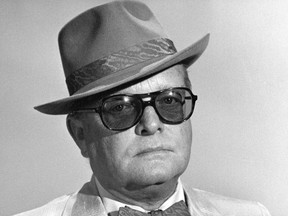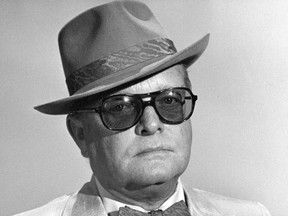Education
Rediscovering Literature: A Journey Back to Reading

In an introspective exploration of reading’s decline, Pete McMartin recounts his personal journey back to literature after years of digital distractions. Once an avid reader, McMartin reflects on how the advent of technology transformed his relationship with books, leading to a significant decrease in his reading habits.
A Literary Awakening
As a teenager with aspirations of literary depth, McMartin immersed himself in the works of renowned authors such as Hemingway, Tolstoy, and Austen. He recalls the physical sensations of reading—the musty smells of books and the rustle of turning pages. Despite his youthful enthusiasm, he acknowledges that many of the complex themes within these texts eluded him. The experience of reading was not merely academic; it was transformative, shaping his thoughts and, ultimately, his career at The Vancouver Sun.
McMartin credits the seasoned reporters at his workplace for introducing him to influential non-fiction writers like John McPhee and Christopher Hitchens. Their works ignited a passion for reading that he had not previously experienced, prompting him to collect first editions and establish a connection with these authors. Yet, a pivotal moment arrived on April 11, 1977, when Doug Sagi wrote the last news story on a typewriter at The Sun, marking the transition from traditional journalism to digital platforms.
The Digital Shift
Following this shift, McMartin describes an overwhelming influx of technology: emails, search engines, and social media. Initially, he engaged with digital tools, enjoying simple games that provided instant gratification. Yet, this quickly evolved into a troubling addiction to distractions, culminating in a stark decline in his reading. He notes a broader trend, citing surveys indicating that in 2023, 46 percent of Americans reported not finishing a single book in the past year. This decline in literacy disproportionately affects men, a fact McMartin attributes to the increasing dominance of female authors in contemporary literature.
Amid feelings of guilt and regret, McMartin found himself in front of his bookshelves, confronting a paperback copy of The Grass Harp by Truman Capote. The book, a gift from a close friend for his 73rd birthday, had remained unread. The inscription, signed “Your brother,” served as a poignant reminder of the time lost to screens and mindless distractions. It spurred a reflection on how digital life had crowded out the beauty and depth that books offer.
In a decisive moment of reconnection, McMartin opened the book, turned to page one, and began to read. This simple act underscored a realization: despite the pervasive digital distractions, the enduring power of literature can still captivate and inspire. McMartin’s story serves as both a personal account and a broader commentary on the challenges posed by modern technology to our reading habits.
-

 Politics4 weeks ago
Politics4 weeks agoSecwepemc First Nation Seeks Aboriginal Title Over Kamloops Area
-

 World5 months ago
World5 months agoScientists Unearth Ancient Antarctic Ice to Unlock Climate Secrets
-

 Entertainment5 months ago
Entertainment5 months agoTrump and McCormick to Announce $70 Billion Energy Investments
-

 Science5 months ago
Science5 months agoFour Astronauts Return to Earth After International Space Station Mission
-

 Lifestyle5 months ago
Lifestyle5 months agoTransLink Launches Food Truck Program to Boost Revenue in Vancouver
-

 Technology3 months ago
Technology3 months agoApple Notes Enhances Functionality with Markdown Support in macOS 26
-

 Lifestyle3 months ago
Lifestyle3 months agoManitoba’s Burger Champion Shines Again Amid Dining Innovations
-

 Top Stories2 months ago
Top Stories2 months agoUrgent Update: Fatal Crash on Highway 99 Claims Life of Pitt Meadows Man
-

 Politics4 months ago
Politics4 months agoUkrainian Tennis Star Elina Svitolina Faces Death Threats Online
-

 Sports5 months ago
Sports5 months agoSearch Underway for Missing Hunter Amid Hokkaido Bear Emergency
-

 Politics5 months ago
Politics5 months agoCarney Engages First Nations Leaders at Development Law Summit
-

 Technology5 months ago
Technology5 months agoFrosthaven Launches Early Access on July 31, 2025











